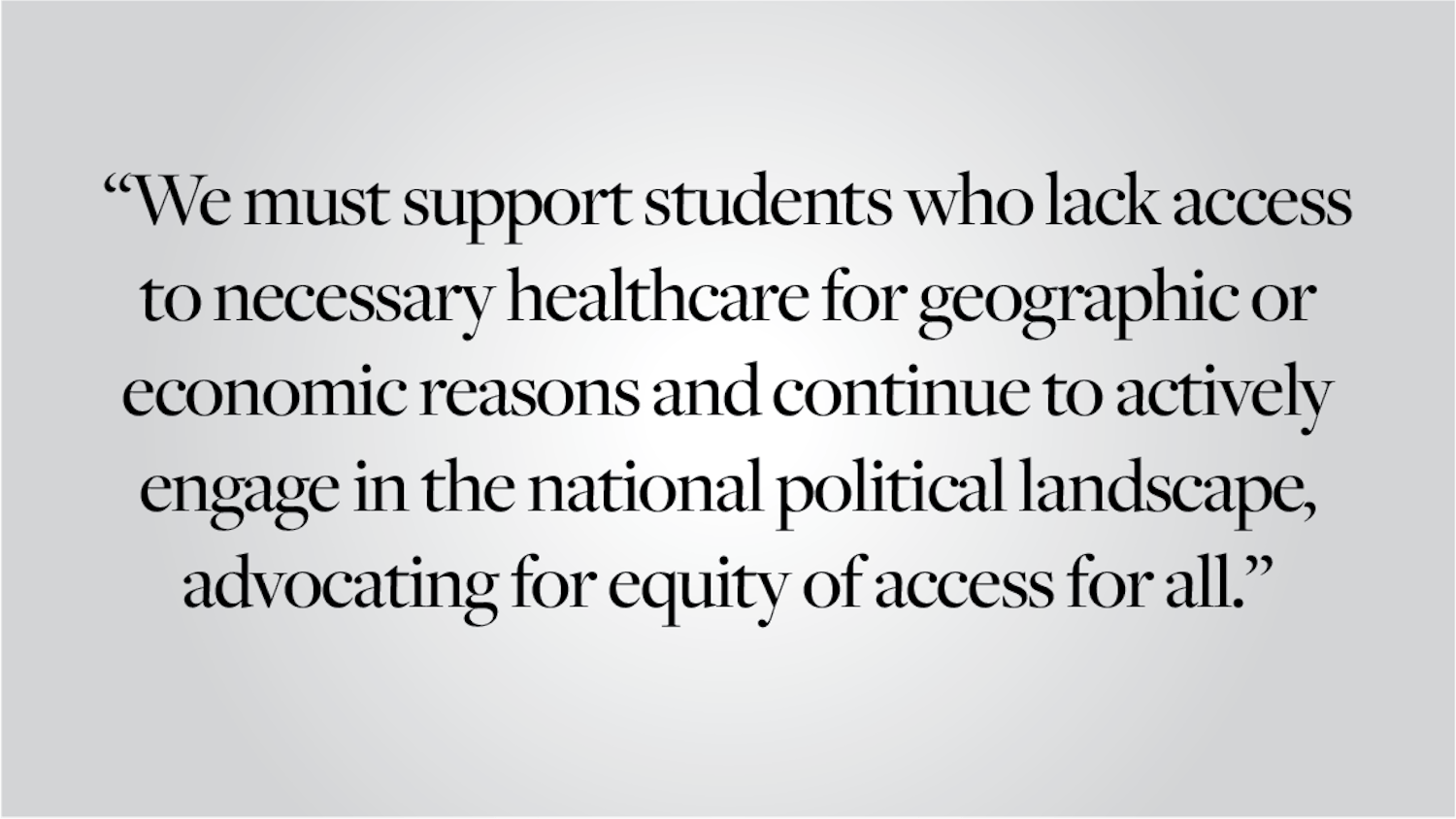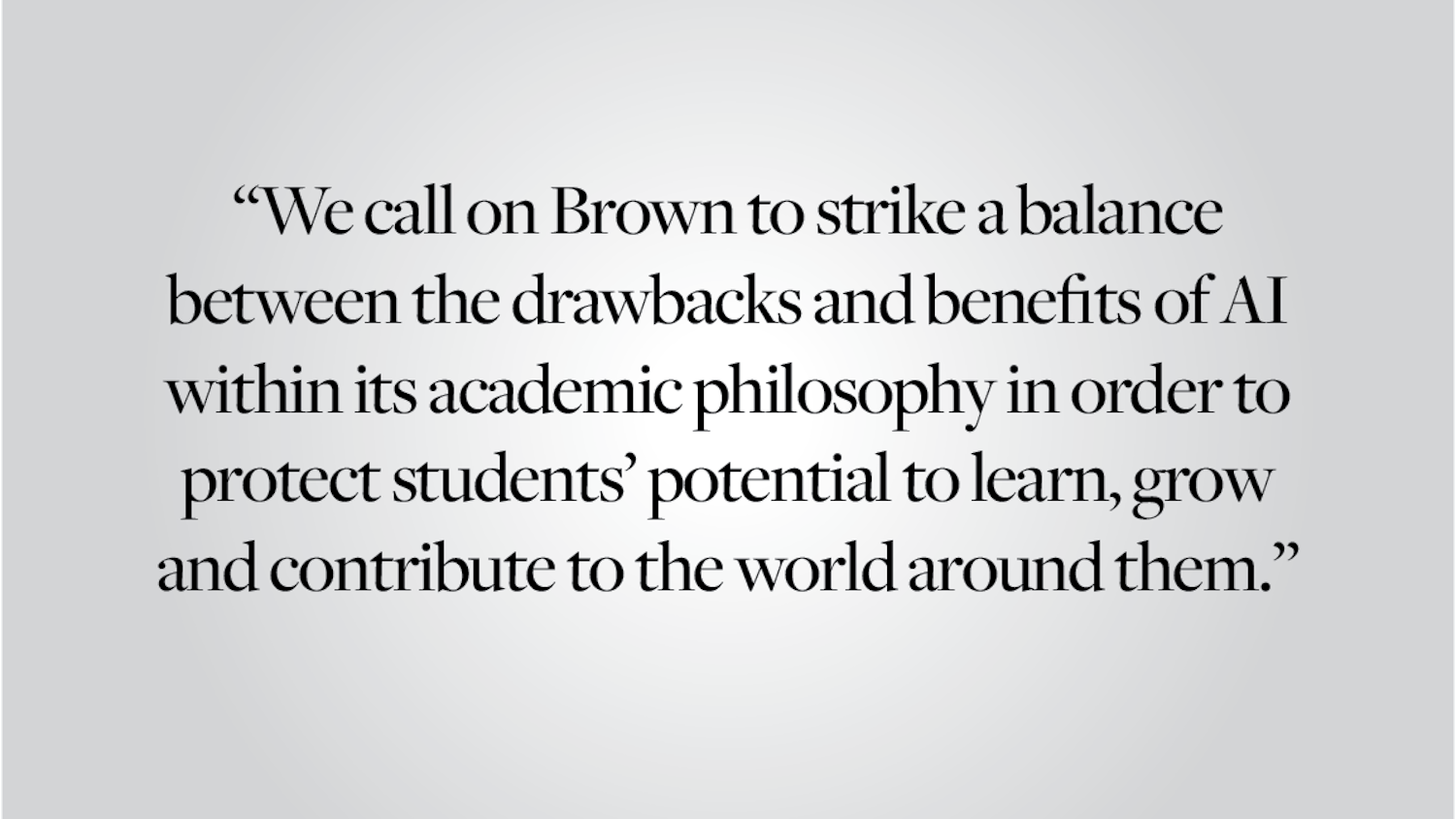Some first-years come to college with a feeling of utmost certainty regarding their futures. They want to be doctors or history professors after college and follow relatively set paths to attain their goals. Others are far more open to exploring the myriad options Brown has to offer. Brown’s open curriculum encourages a liberal-learning approach that establishes a broad knowledge base focusing on modes of thought — three based on language and four on numbers. While we are allowed to craft our own intellectual pathways among these modes of thought, we must remain open to opinions, opportunities and experiences that come our way.
The open curriculum has evolved. In addition to the two primary requirements — completing 30 courses and a concentration — we now need to satisfy two writing requirements: one at the start of our time at Brown and one in semesters five through seven. This requirement seeks to demonstrate an evolution in how we explore our thoughts and reason arguments. While some students practically satisfy these requirements unconsciously, others are not as comfortable with them.
But this brings up a larger question of if and how the open curriculum should be qualified. If writing is essential to good learning, then what about mathematics? The word “math” alone has inspired dread and despair in students across the world who slogged through high school precalculus with no intention of revisiting such topics. Brown’s lack of math requirement offers a vehicle out. But one can argue that while all disciplinary studies require some level of reasoning, none do so to the extent of math. Math serves as the basis of logic and the best way for students to learn through rigorous reasoning.
Should the University be comfortable knowing some students walk out the Van Wickle Gates without improving math skills beyond the high school level? Perhaps certain concentrations that equip students with vital skills intimidate potential enrollees at the expense of their development.
The open curriculum testifies to Eleanor Roosevelt’s maxim that “with freedom comes responsibility.” For students entering college with little or no idea of what to pursue, the array of choices can be overwhelming. Brown has a comprehensive advising team and robust academic support system, but there is an entire host of other factors to consider. For example, some prioritize the “practicality” of a concentration over the “passion” they feel for a subject.
One often hears the phrase “your major (or concentration) doesn’t define you”; the skill set you develop, the concepts you’re exposed to, the projects you’ve completed are instead more reflective of the kind of individual you are. So take the opportunities provided by the open curriculum to develop new skills, expose yourself to new concepts and complete challenging projects. Still, these more abstract endeavors might not be understood outside the context of a liberal arts education. There’s a deep sense of insecurity that can be associated with letting go of certainty, and one can’t help but think: What am I going to do now?
Editorials are written by The Herald’s editorial page board: its editors, Alexander Kaplan ’15 and James Rattner ’15, and its members, Natasha Bluth ’15, Manuel Contreras ’16, Baxter DiFabrizio ’15, Manuel Monti-Nussbaum ’15, Katherine Pollock ’16 and Himani Sood ’15. Send comments to editorials@browndailyherald.com.
ADVERTISEMENT




